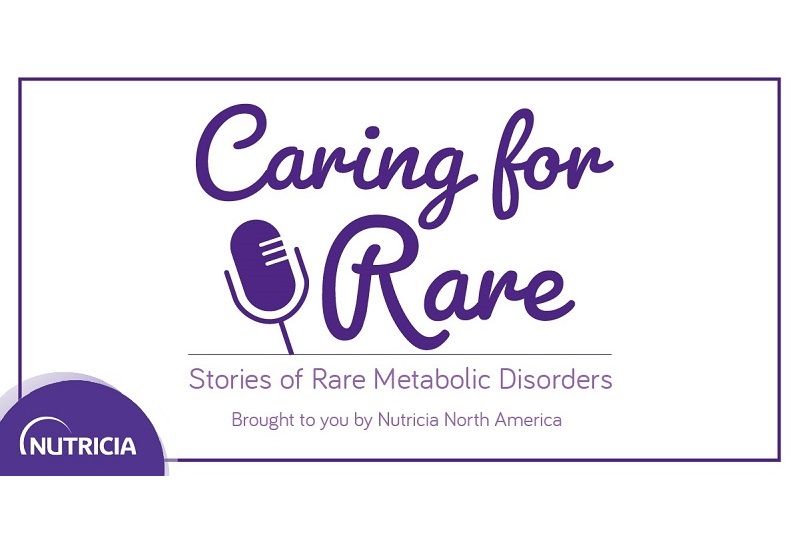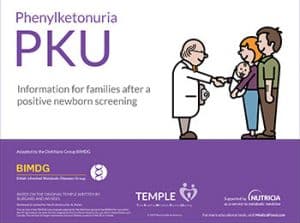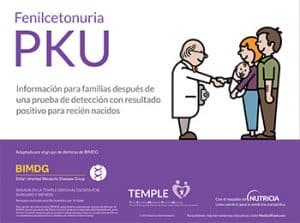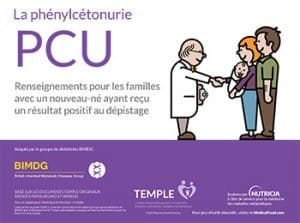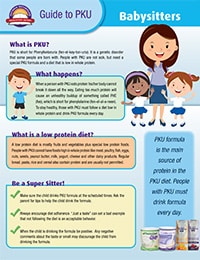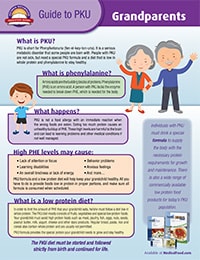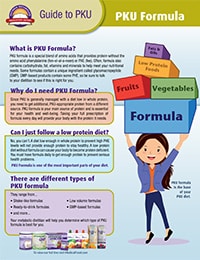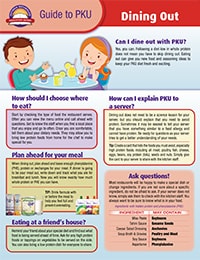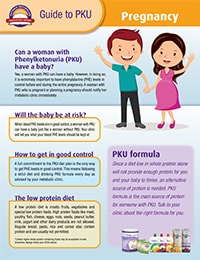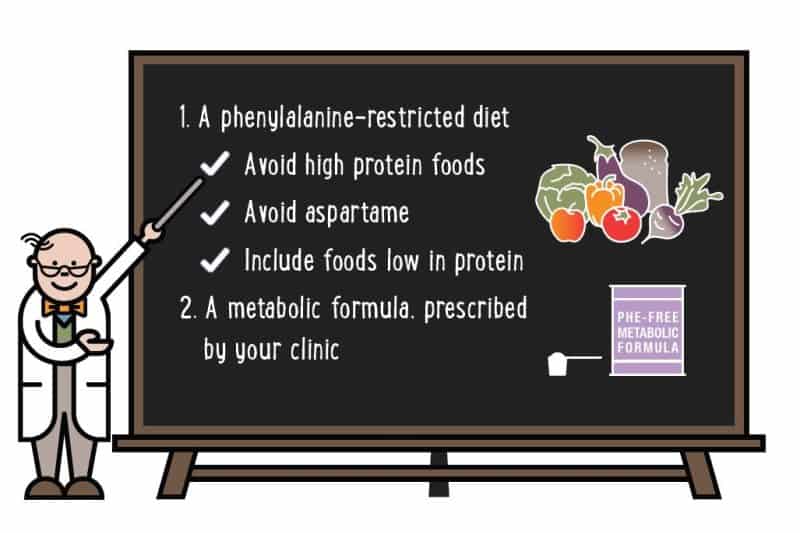PKU - Phenylketonuria Education & Support
Phenylketonuria (PKU) is an inherited genetic disorder caused by a deficiency of the enzyme phenylalanine hydroxylase (PAH). PAH helps the body break down the amino acid phenylalanine (PHE) into tyrosine (TYR), another amino acid.
Protein is made up of smaller units called amino acids. Amino acids are important to build muscle and other body tissues for normal growth. Any extra amino acids are normally broken down to produce energy. In PKU, PHE cannot be broken down in the body. Consuming too much PHE from food can lead to a toxic buildup of PHE in the blood and brain of a person with PKU.
Finding out that your child has PKU can be overwhelming. Fortunately, nutrition management is available to help prevent many of these problems. Take comfort in knowing that your metabolic healthcare team can provide you with the best advice to help manage PKU.
There are two classifications of PKU: classic PKU and hyperphenylalaninemia (hyperphe). Both classic PKU and hyperphe are characterized by a mutation of the PAH enzyme. Classic PKU is the result of severe mutations of this enzyme and requires a strict low-PHE diet. In the case of hyperphe, the defect in the enzyme is less severe, and blood PHE levels are usually not as high as in a person with classic PKU. However, blood PHE levels are still above the normal range, which may require some dietary restriction. Persons with hyperphe tend to tolerate higher amounts of PHE in the diet. Your metabolic healthcare team can provide you with the best advice to help manage these dietary restrictions.
Incidence, Genetics and Newborn Screening
It is estimated that one out of 10,000 live births has decreased PAH activity. There is a higher incidence in Caucasians and Native Americans, and a lower incidence among African Americans, Hispanics, and Asians.
PKU is inherited as a “recessive disorder.” In recessive disorders, both the mother and father are “carriers,” and do not have any symptoms of the disorder. With each pregnancy there is a 1 in 4 (25%) chance that the infant will be affected. A genetic counselor can help explain the inheritance of PKU and the risks to future infants.
PKU can be screened for at birth through a simple blood test, referred to as newborn screening (NBS). NBS for PKU began in the US in the 1960s. It is important that an infant is diagnosed and managed with diet within days after birth to prevent permanent negative effects from PKU. For more details on NBS in the US, visit https://newbornscreening.hrsa.gov/your-state; for information on NBS in Canada, visit https://www.raredisorders.ca/.
There is currently no cure for PKU, but it can be managed with a special low-PHE diet consisting of foods low in protein and a special PHE-free formula*. Since all foods with protein contain PHE, persons with PKU must restrict the amount and types of foods containing protein. The main sources of foods with protein allowed on the low-PHE diet are vegetables and fruits and a limited amount of cereals and grains. In addition, individuals with PKU must drink a special PHE-free formula* that supplies additional protein the body needs for growth and maintenance, without the addition of PHE. There is also a wide range of commercially available low protein food products for today’s PKU population.
Nutricia North America provides a range of PKU formulas as well as low protein foods. Please contact us for more information. Your dietitian will help you decide which products are best.
Nutrition management of PKU includes frequent monitoring of blood PHE levels and regular clinic visits. Blood PHE levels can be measured either at the clinic or hospital or collected at home and mailed to the clinic for analysis. The recommendation is to manage blood PHE levels between 120-360 μmol/L (2-6 mg/dL).
Symptoms of Elevated Blood PHE Levels
An infant with PKU who is not managed immediately will begin to build up PHE in the blood and brain. In an infant with PKU, increased PHE levels in the blood and brain over time will result in irreversible brain damage. Therefore, it is essential that each infant who is diagnosed with PKU be started on the low-PHE diet as soon as possible after birth.
If a child or adult previously diagnosed with PKU and on diet decides to discontinue the diet, he or she will begin to build up PHE in the blood, which may increase PHE levels in the brain. Over time, toxic levels of PHE in the brain can harm a person’s nervous system. A person with PKU who discontinues the low-PHE diet might experience mood changes and become easily aggravated. Thinking skills, memory, social behavior and concentration can all decline with high PHE levels. Also, a person might feel shaky and clumsy. For these reasons, it is important that persons with PKU stay on the low-PHE diet as advised by their healthcare provider.
*With the exception of glycomacropeptide (GMP)-based formulas, which naturally contain some PHE.
| Screening Technologies and Research in Genetics (STAR-G) |
| Newborn Screening in Your State (US) |
| National PKU Alliance (NPKUA) |
| Canadian Organization for Rare Disorders |
| Canadian PKU and Allied Disorders |
Nutricia North America would like to thank Laurie Bernstein, MS, RD, FADA, FAND, Children’s Hospital Colorado, for her consultation.
Inspiring Stories
Our Caring for Rare podcast series explores what life is like with a rare metabolic disorder such as phenylketonuria (PKU), maple syrup urine disease (MSUD), and homocystinuria (HCU). Episodes feature families’ personal stories of inborn errors of metabolism.
PKU Education & Guides
Tools Enabling Metabolic Parents Learning (TEMPLE)
This easy-to-understand education booklet and video are for families affected by a diagnosis of PKU. The book and video share the basics of the disorder and the genetics behind PKU.
Click on the booklet to view and download in your preferred language.
Maternal PKU Resources
Julia's Story
Elizabeth's Story
Low Pro Living Support
We have a library of information to help support families like yours throughout the various stages of life's journey. From big moments, like starting college to little ones like what to eat for dinner, we have tips and ideas to help you along the way.

